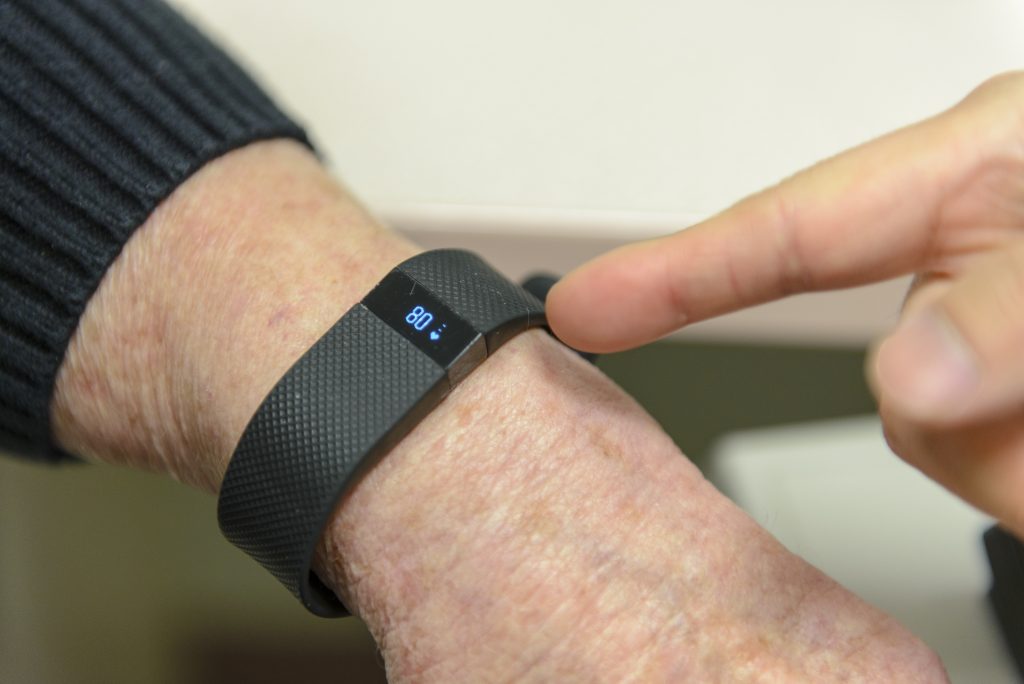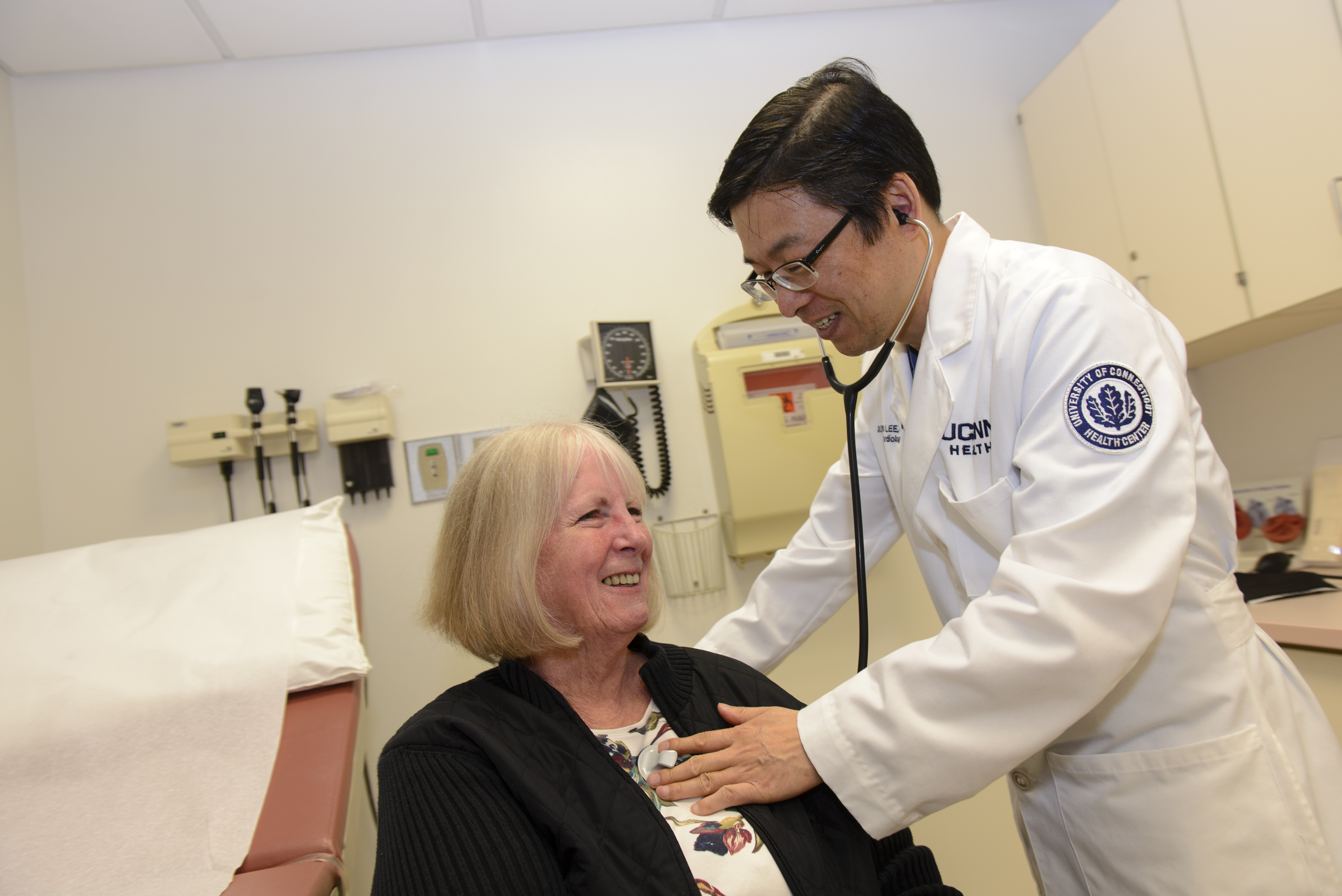
Seventy-three-year-old Patricia Lauder of Harwinton had just retired and was looking for a way to get fit. So she bought a Fitbit to wear on her wrist to track her steps, hoping to walk her way to improved health and weight loss.
What she didn’t know was that this small investment in a fitness tracker was about to save her life.
“I wasn’t feeling well for a few weeks, and thought I might be battling a bad cold or walking pneumonia that I just couldn’t kick,” says Lauder.
Yet a few visits to doctors, testing, and X-rays came back negative for pneumonia or any other health issues.
Then she started to experience shortness of breath and fatigue, while walking even very short distances in her own home. She noticed that her Fitbit was telling her that her usual resting heart rate of 68-70 beats per minute was ticking up and up, by five points a day.

Then one day her heart rate spiked to 140 beats per minute.
“I was going downhill fast,” she says. “I knew I was in trouble, and dialed 9-1-1.”
Lauder asked the ambulance to take her to UConn Health because she says she knew it had the reputation for the best cardiac care in the area.
A CT Scan in the Emergency Department at UConn John Dempsey Hospital revealed she was suffering from two large blood clots in her lung arteries. These clots, known as pulmonary embolisms, were causing her lungs and heart to be stressed and over-pressurized. Her lung artery pressure spiked to 65, when 25 is normal, while her heart was over-working and had become enlarged.
Lauder says she normally tends to panic in an emergency health care situation like this, but Dr. JuYong Lee’s calm bedside manner and expertise put her at ease: “I felt such faith in Dr. Lee from the moment I met him,” she says.
According to Lee, director of vascular and endovascular medicine at UConn Health’s Pat and Jim Calhoun Cardiology Center at UConn Health, the mortality rate of a pulmonary embolism is more than 30 percent when it is massive. These risky lung blood clots can over-pressurize the heart, leading the body’s blood pressure and oxygen level to drop significantly. The biggest risk factor for developing a pulmonary embolism is deep vein thrombosis, when a blood clot forms in a vein, most often in the leg, and can travel up to the lungs.
Fortunately, Lee had an innovative, minimally invasive, and rapid solution to dissolve the blood clots in the lungs.
Instead of taking a slower, wait-and-see approach using intravenous anti-coagulation medication, Lee decided to intervene right away and apply clot-busting drugs directly into the lungs’ blood clots through a catheter. The very next day, Lauder’s blood clots were gone and her lung and heart health totally normalized. “I have never seen such a dramatic improvement overnight,” says Lee.
Along with her doctor, Lauder is very happy with her outcome and also the power of her little fitness tool.
“If I didn’t have a Fitbit on my wrist, I would never have known that my heart rate was getting dangerously high,” she says. “And I might not be here to tell my story.”
To learn more about the Calhoun Cardiology Center visit health.uconn.edu/cardiology.



